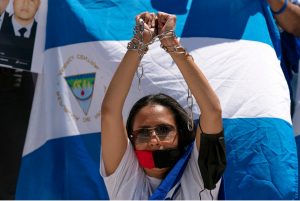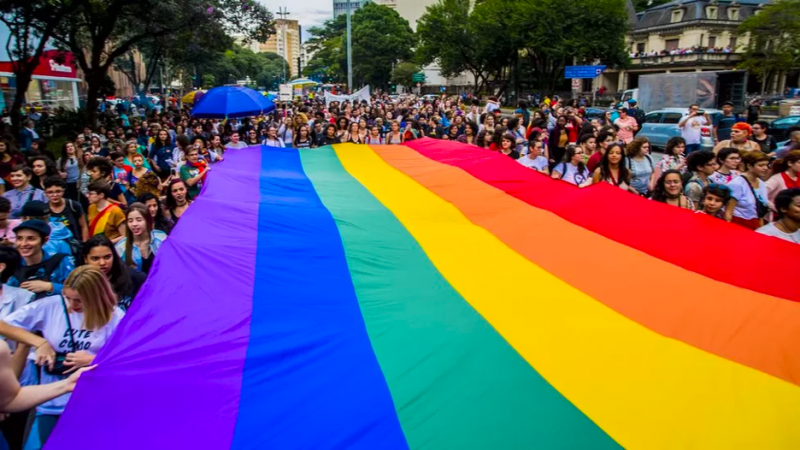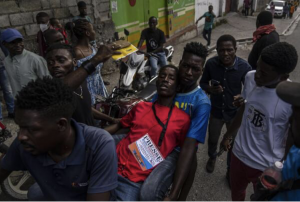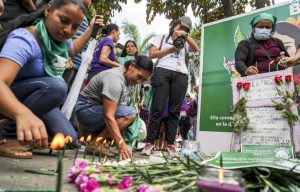By: Jacob Riederer
Impunity Watch News Staff Writer
GUATEMALA – The Inter-American Court of Human Rights (IACHR) issued a ruling on October 23, 2023, requiring Guatemalan authorities to take action to prevent the adoption of two proposed bills that would provide immunity to those alleged to have committed human rights atrocities.
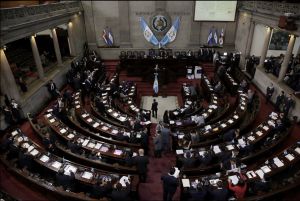 |
Between, 2002 and 2018 the IACHR ruled on 14 cases alleging forced disappearances, executions, torture, war crimes, genocide and other issues that took place during Guatemala’s civil war. These rulings resulted in investigations, trials, and sentences for those responsible for these heinous actions.
Bill 5377, introduced in the Guatemalan Legislature in 2019, threatened to invalidate these rulings. If passed, the bill would have halted investigations and provided amnesty to those convicted in the 14 cases. Proponents of the bill and ones like it argue that it would allow the nation to heal divisions from the civil war. Others assert that it’s unfair to hold those accountable since these crimes were not specifically codified into law at the time.
In 2019, the IACHR issued ruling requiring that Guatemala “guarantee the right to access to justice for the victims” of the 14 cases and to take action to prevent the passage of Bill 5377. The Government of Guatemala complied with the ruling and Bill 5377 was tabled and not passed into law.
Recently, however, two new Bills, 5920 and 6099, were introduced to the Guatemalan Congress that would give amnesty to the perpetrators of human rights abuses during the Guatemalan Civil War. Notably, these bills not only immediately free those convicted of crimes but punish prosecutors, judges, and courts that attempt to review or dispute this law.
In response, representatives of victims of crimes perpetrated during conflict asked the court to “suspend and correspondingly definitively table” the bills, arguing that that the newly proposed laws violate IACHR’s previous ruling and have the same purpose as the previously invalidated 5377 bill in erasing liability for those convicted of serious human rights atrocities.
The Government of Guatemala maintains that they are in compliance with the court’s previous resolution, asserting that the ruling to table legislation only applied to Bill 5377. It further argues that Guatemala already has legislative and judicial “mechanisms to guarantee constitutionality and compatibility with conventional norms” with respect to these two bills.
The court sided with representatives of victims noting that both bills “seek to declare the extinction of criminal responsibility and absolute amnesty regarding all crimes committed during the internal armed confrontation.” Because of this, they are in violation of the court’s 2019 ruling which forbade Guatemala to put forth claims “excluding responsibility that prevent the investigation of the violations of serious human rights.”
Further, the court rejected the government’s argument that there are already national measures in place to ensure checks on the legal and constitutional validity of the laws, arguing that “there is a high risk that judicial control cannot be carried out internally.” This is because the bills would require the immediate release of those convicted before a review process may be able to take place.
Additionally, the provisions in the bill mandate criminal punishments for prosecutors, judges and courts officials seeking to review the law and hold the offending parties accountable. The court also notes the potential for harassment, intimidation, and threats to Guatemalan judicial officials in this situation based on past accounts of this in these cases. The courts, therefore, see these laws as harmful because of their potential to eliminate judicial independence, review and safety.
In the resolution, the court also required the Guatemalan government to present a report on how it’s complying with the ruling no later than December 4, 2023 and to continue sharing updated compliance reports every three months thereafter.
For further information, please see:
Prensa Libre – Tercer Intento Para Motivar a La Aprobación de Una Ley de Amnistía – 6 AUG 2022
